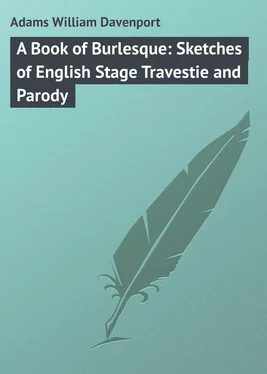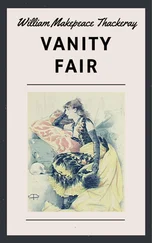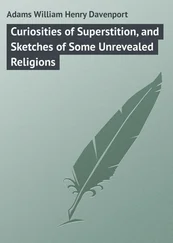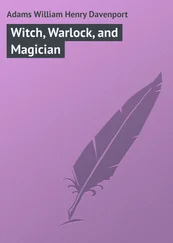William Adams - A Book of Burlesque - Sketches of English Stage Travestie and Parody
Здесь есть возможность читать онлайн «William Adams - A Book of Burlesque - Sketches of English Stage Travestie and Parody» — ознакомительный отрывок электронной книги совершенно бесплатно, а после прочтения отрывка купить полную версию. В некоторых случаях можно слушать аудио, скачать через торрент в формате fb2 и присутствует краткое содержание. ISBN: , Жанр: foreign_prose, на английском языке. Описание произведения, (предисловие) а так же отзывы посетителей доступны на портале библиотеки ЛибКат.
- Название:A Book of Burlesque: Sketches of English Stage Travestie and Parody
- Автор:
- Жанр:
- Год:неизвестен
- ISBN:http://www.gutenberg.org/ebooks/47150
- Рейтинг книги:5 / 5. Голосов: 1
-
Избранное:Добавить в избранное
- Отзывы:
-
Ваша оценка:
- 100
- 1
- 2
- 3
- 4
- 5
A Book of Burlesque: Sketches of English Stage Travestie and Parody: краткое содержание, описание и аннотация
Предлагаем к чтению аннотацию, описание, краткое содержание или предисловие (зависит от того, что написал сам автор книги «A Book of Burlesque: Sketches of English Stage Travestie and Parody»). Если вы не нашли необходимую информацию о книге — напишите в комментариях, мы постараемся отыскать её.
A Book of Burlesque: Sketches of English Stage Travestie and Parody — читать онлайн ознакомительный отрывок
Ниже представлен текст книги, разбитый по страницам. Система сохранения места последней прочитанной страницы, позволяет с удобством читать онлайн бесплатно книгу «A Book of Burlesque: Sketches of English Stage Travestie and Parody», без необходимости каждый раз заново искать на чём Вы остановились. Поставьте закладку, и сможете в любой момент перейти на страницу, на которой закончили чтение.
Интервал:
Закладка:
Mighty monarch, stir your stumps, for court and caravansary
Are emptied of inhabitants all crazy with affright;
The monster he is longer far than any suit in Chancery,
And beats the Court of Aldermen, by chalks, for appetite!
The Serpent, when he arrives, introduces himself to the king in an engaging fashion: —
All bones but yours will rattle when I say
I am the sea serpent from America.
Mayhap you've heard that I've been round the world;
I guess I'm round it now, mister, twice curled…
Of all the monsters through the deep that splash,
I'm "number one" to all immortal smash.
When I lie down, and would my length unroll,
There ar'n't half room enough 'twixt pole and pole.
In short, I grow so long that I've a notion
I must be measured soon for a new ocean.
The exaggeration which is so characteristic of American humour is here happily satirised. In another passage, Perseus, addressing himself to Andromeda, sings a neatly turned parody of "We met – 'twas in a Crowd": —
We met! 'twas at the ball,
Upon last Easter Monday;
I press'd you to be mine,
And you said, "Perhaps, one day."
I danced with you the whole
Of that night, and you only;
Ah, ne'er "cavalier seul"
Felt more wretched and lonely.
For when I squeezed your hand,
As we turned one another,
You frown'd and said, "Have done!
Or I'll speak to my mother!"
They called the Spanish dance,
And we flew through it fleetly —
'Twas o'er – I could not breathe,
For you'd blown me completely.
I led you to a seat
Far away from the dancers;
Quadrilles again began,
They were playing "the Lancers";
Again I squeezed your hand,
And my anguish to smother
You smiled, and said, "Dear Sir,
You may speak to my mother."
In 1861 Perseus and Andromeda reappeared upon the comic stage at the instance of William Brough, who made them the hero and heroine of a burlesque at the St. James's.
The story of Telemachus was the subject which engaged the attention of Planché immediately after he had done with Perseus. Fénelon's tale had become extremely familiar to the British schoolboy, who at that time was not thought to have "grounded" himself sufficiently in French until he had read the narrative in the original. Hence Planché's "Telemachus, or the Island of Calypso," 10 10 Played at the Olympic in 1834.
concerning which the author took credit to himself once more for having "preserved the well-known plot with the most reverential fidelity." Ten years later the same subject was treated in the "Telemachus" of Stirling Coyne, played at the Adelphi with Miss Woolgar in the title-part, Wright as Calypso (a ballet-dancer!) and Paul Bedford as the hero's Mentor or "tor-Mentor." In 1863 the story of the parents of Telemachus proved attractive to Mr. Burnand, whose "Patient Penelope" made her curtsey at the Strand, to be followed at the St. James's, two years later, by the same writer's "Ulysses."
Still tracing the course of Planché's labours in burlesque, we come next to the production, at the Haymarket in 1845, of "The Golden Fleece" – perhaps, on the whole, the most delightful of the series. In this ingenious and brilliant piece, the two parts of which were entitled respectively "Jason in Colchis" and "Medea in Corinth," Planché had taken the narrative of Apollonius Rhodius and the tragedy of Euripides, and had built upon them a composition in which he sought less to cast ridicule upon the legends selected than to travestie what he called "the modus operandi of the classical period, which really illustrates the old proverbial observation that there is but one step from the sublime to the ridiculous." He brought again upon the stage the ancient Chorus, incarnated in a single person, who explained the action of the piece as it went on, not hesitating even to interrupt it when the humorous opportunity occurred. Charles Mathews undertook the part, heralded by a jocose announcement on the "bills" to the effect that "The lessee has, regardless of expense, engaged Mr. Charles Mathews to represent the whole body of the chorus, rendering at least fifty-nine male voices entirely unnecessary." In the opening scene, the Chorus thus described his functions: —
Friends, countrymen, lovers, first listen to me:
I'm the Chorus; whatever you hear or you see
That you don't understand, I shall rise to explain —
It's a famous old fashion that's come up again,
And will be of great service to many fine plays
That nobody can understand nowadays;
And think what a blessing if found intervening,
When the author himself scarcely knows his own meaning.
You may reap from it, too, an advantage still further:
When an actor is bent upon marriage or murther,
To the Chorus his scheme he in confidence mentions,
'Stead of telling the pit all his secret intentions;
A wondrous improvement you all will admit,
And the secret is just as well heard by the pit.
Verbum sat. – To the wise I'll not put one more word in,
Or instead of a Chorus, they'll think me a burden .
Later in the piece, announcing the approach of King Æetes (Bland), the Chorus interposed with: —
Æetes comes, looking as black as thunder,
And when you hear the cause you'll say "No wonder";
For Jason, aided by Medea's spell,
Has done the trick, and done the King as well.
You'll think, perhaps, you should have seen him do it,
But 't isn't classical – you'll hear, not view it.
Whatever taxed their talents or their means,
These sly old Grecians did behind the scenes;
So, fired with their example, boldly we
Beg you'll suppose whate'er you wish to see.
Elsewhere occurred this famous bit of badinage between King and Chorus: —
Chorus. Be calm, great King – 'tis destiny's decree.
Æetes. How dare you talk of destiny to me!
What right have you with such advice to bore us?
Chorus. Sir, I'm the Chorus.
Æetes. Sir, you're indecorous.
In the course of the piece Mathews sang, among other things, an excellent ditty, to the tune of "The Tight Little Island": —
'Twas very ungrateful, you'll say, sir,
But, alas! of the world it's the way, sir,
When all a friend can, you have done for a man,
He'll cut you quite dead the next day, sir.
But perhaps the most successful parody in "The Golden Fleece" was that on "The Fine Old English Gentleman," assigned to Mme. Vestris as Medea. This is worth quoting in full: —
I'll tell you a sad tale of the life I've been led of late,
By the false Bœotian Boatswain, of whom I am the mate:
Who quite forgets the time when I pitied his hard fate
And he swore eternal constancy by all his gods so great;
Like a fine young Grecian gentleman,
One of the classic time!
Now he lives in a fine lodging, in the palace over there,
Whilst I and his poor children are poked in a back two-pair;
And though he knows I've scarcely got a second gown to wear,
He squanders on another woman every farthing he's got to spare,
Like a false young Grecian gentleman,
One of the classic time.
He leaves me to darn his stockings, and mope in the house all day,
Whilst he treats her to see "Antigone," with a box at the Grecian play,
Then goes off to sup with Corinthian Tom, or whoever he meets by the way,
And staggers home in a state of beer, like (I'm quite ashamed to say)
A fine young Grecian gentleman,
One of the classic time.
Интервал:
Закладка:
Похожие книги на «A Book of Burlesque: Sketches of English Stage Travestie and Parody»
Представляем Вашему вниманию похожие книги на «A Book of Burlesque: Sketches of English Stage Travestie and Parody» списком для выбора. Мы отобрали схожую по названию и смыслу литературу в надежде предоставить читателям больше вариантов отыскать новые, интересные, ещё непрочитанные произведения.
Обсуждение, отзывы о книге «A Book of Burlesque: Sketches of English Stage Travestie and Parody» и просто собственные мнения читателей. Оставьте ваши комментарии, напишите, что Вы думаете о произведении, его смысле или главных героях. Укажите что конкретно понравилось, а что нет, и почему Вы так считаете.












